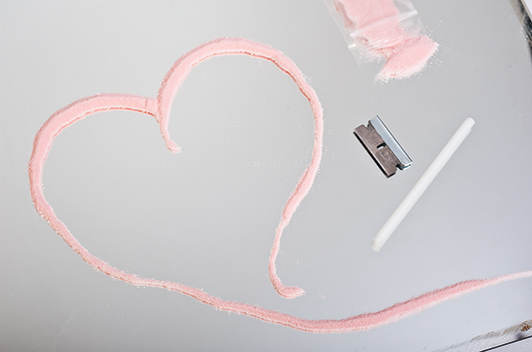When it comes to its effect on your body, falling in love is pretty much the same thing as snorting heroin through a cocaine straw.
When it comes to its effect on your body, falling in love is pretty much the same thing as snorting heroin through a cocaine straw.
It’s supposed to be the greatest thing since legalized weed (sorry, sliced bread), but instead we most often feel like we need an intervention and a 12-step program to control ourselves when we fall in love. It turns out that’s because love affects your brain in almost the exact same way addiction does. Love, guys and gals, is a helluva drug.
When you fall in love, your brain releases a veritable dopamine monsoon. This chemical stimulates your brain’s desire and reward circuitry by triggering an intense, addictive rush of pleasure and giddy focus. Guess what else does that? Cocaine! And nicotine, according to biological anthropologist Helen Fisher of Rutgers University. Her research indicates love exacts the same effect on your brain as these addictive compounds do.
Whether you’re snorting lines off of a stripper’s love handles or falling in love with a Fabio impersonator, dopamine starts to gradually saturate your brain when your chosen vice is around. As it does this, it produces less and less dopamine on its own, relying on your new fuck buddy to stimulate dopamine production for it. A recent study from Dartmouth College found part of what stimulates this dopamine production is inhalation of your partner’s airborne pheromones. Basically, you huff that hottie to get high.
Dopamine makes you feel high by giving you increased energy, less need for sleep or food, focused attention, heightened senses, boundless enthusiasm and exquisite delight in the smaller, more trite details like being Facebook-official.
But when something goes wrong, say you get in a fight or she doesn’t call you back, your dopamine disappears along with your lover, cutting off the reward circuit, and you start to go through physical withdrawal. Remember two sentences back when we mentioned your brain relies on your main squeeze for dopamine stimulation? Yeah. Withdrawal.
Like narcotics, dopamine creates idiot blinders that keep you from seeing the flaws in the person you’re with or the meth that’s dissolving your teeth. The way it interacts with your brain circuitry makes you think your new boo is your soulmate and that you’ll never find anyone like her. It also forces you to ignore catastrophic differences, hiding your partner’s flaws and making you say and do anything to get along with and please each other.
Eventually, the high wears off. Anywhere from two months to two years after you fall in love, a different set of hormones, called oxytocin and vasopressin, takes over. These bad boys make you feel content, comfortable and nurturing, and they foster long-term bonds, which makes the wild, dopamine-fueled days of your past seem like a passionate, weird dream. Unlike with dopamine, your brain continues to make steady levels of these hormones regardless of the presence of your babe. That’s why, once you’ve been in a steady, long-term relationship for a while, fights bother you less, and you have less emotional highs and lows than you did in the beginning. But, even when you’re in the long-term stage, researchers have found that novelty and spontaneity can bring little spikes of dopamine back into your life, filling you with the same lust and attraction you felt when you first met. Just like that, you’re off the wagon.
Now that you know this, wouldn’t you be better off just doing crack instead?




Leave a Reply